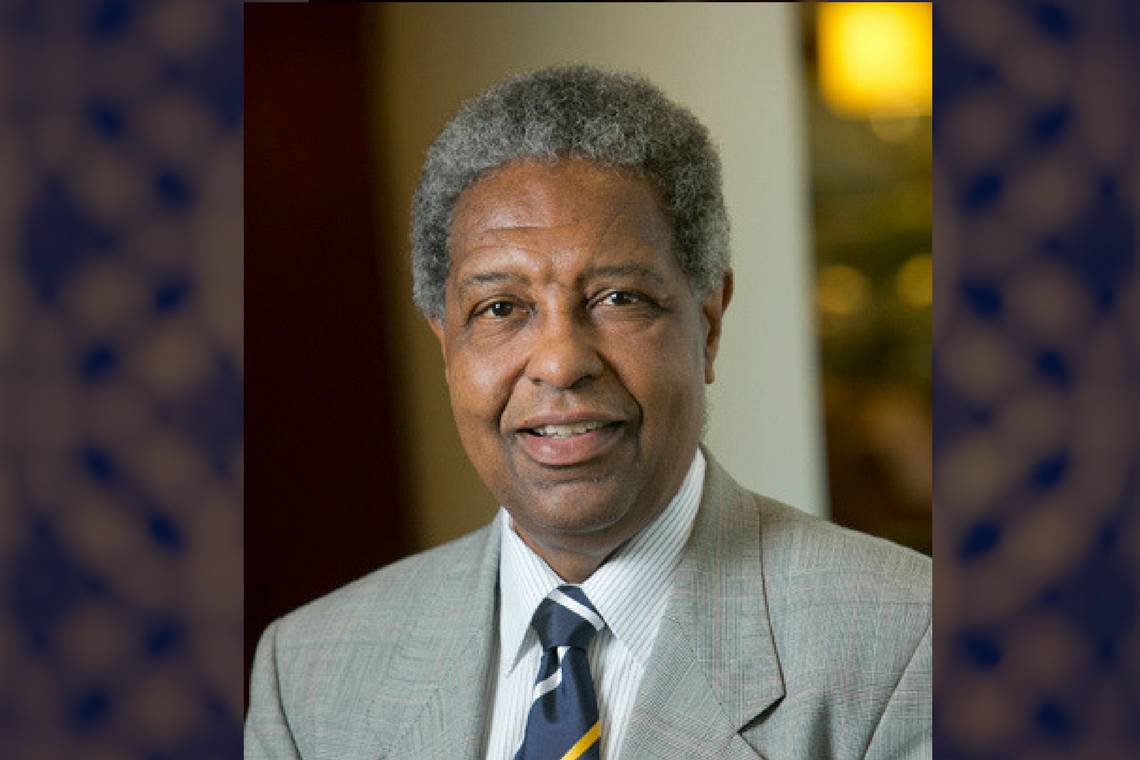Cook Center Director William “Sandy” Darity Jr. honored with prestigious award at 2017 Future of Wealth Summit

William “Sandy” Darity Jr., founding director of the Samuel DuBois Cook Center on Social Equity and Samuel DuBois Cook Professor of Public Policy, African and African American Studies, and Economics, was honored for his research related to racial inequality and the racial wealth gap in the United States at the 2017 Future of Wealth Summit: Technology, Inclusion and Social Change April 27 in Washington, D.C.
Darrick Hamilton, associate director of the Cook Center and associate professor of Economics and Urban Policy at the New School for Social Research, was a co-recipient along with Darity. The summit was convened by the Center for Global Policy Solutions, an organization that supports building a diverse and inclusive world.
Ben Jealous, partner at Kapor Capital and former president and chief executive officer of the National Association for the Advancement of Colored People (NAACP), and Congresswoman Eddie Bernice Johnson, U.S. House of Representatives, D. (TX-30), were also among the 2017 honorees.
Maya Rockeymoore, president and CEO of the Center for Global Policy Solutions, highlighted the centrality of Darity and Hamilton’s research in the movement for racial and economic justice in the United States: “[Darity and Hamilton] have been instrumental in shaping the entire movement around the racial wealth gap in this country,” Rockeymoore said. “We consider them leaders in the field.”
In accepting the award, Darity noted the collaborative nature of his research, citing the various scholars and organizations involved with the National Asset Scorecard for Communities of Color (NASCC) Project, along with other research initiatives he spearheads concerning racial and wealth inequality in the United States.
“Darrick and I have been bound on a journey to try to redress what we think is a fundamental flaw in the way in which people think about racial inequality in the United States,” Darity said. “Much of the reasoning to try to explain racial inequality in the United States is contingent on the view that black people are in some way fundamentally dysfunctional…the evidence does not support that narrative.” Darity said.
There is a narrative that is much more accurate, Darity continued, about the structural nature of this society and the systemic ways in which it has restricted, constrained, and, in some case, destroyed the lives of black people.
The Samuel DuBois Cook Center on Social Equity at Duke University is a scholarly collaborative engaged in the study of the causes and consequences of inequality and in the assessment and redesign of remedies for inequality and its adverse effects.